Trump Pulls Back From War With Iran
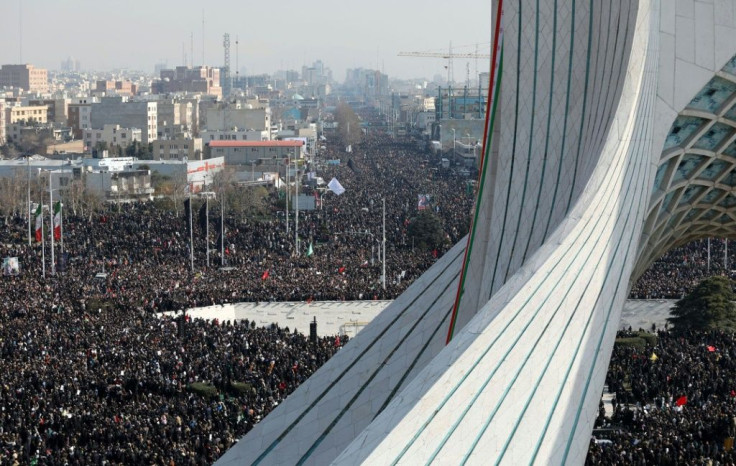
President Donald Trump pulled back from the brink of war with Iran on Wednesday, saying that Tehran appeared to be "standing down" after firing missiles -- without causing casualties -- at US troops based in Iraq.
In a televised address to the nation from the White House, Trump emphasized there were "no Americans harmed" in the ballistic missile salvo aimed at two bases.
While he promised to immediately impose "punishing" new economic sanctions on Tehran, Trump welcomed signs the Islamic republic "appears to be standing down" in the tit-for-tat confrontation.
The comments cooled what threatened to become an uncontrolled boiling over of tensions after Trump ordered the killing last Friday of a top Iranian general, Qasem Soleimani.
In New York, the Nasdaq stock market index surged to a record high of 9,129.24.
However, the US president, facing both an impeachment trial in Congress and a tough reelection in November, defended his targeting of a man seen by many as Iran's second most influential official.

Soleimani, a national hero at home, was "the world's top terrorist" and "should have been terminated long ago," Trump said.
And although Trump ended his remarks with a call for peace, he opened by stating that he would never allow Iran to procure a nuclear weapon.
It was Trump's 2018 withdrawal from a multinational agreement aimed at curbing Iran's nuclear ambitions, and the reimposition of crippling economic sanctions against Tehran, which began an intensification of tensions between the two countries.
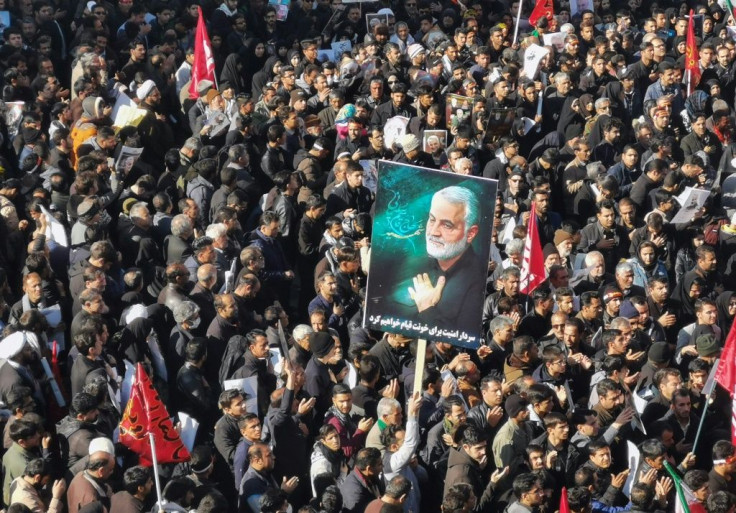
Iran's missiles targeted the sprawling Ain al-Asad airbase in western Iraq and a base in Arbil, both housing American and other foreign troops from a US-led coalition fighting the remnants of the Islamic State jihadist group.

Iran's supreme leader Ayatollah Ali Khamenei, who earlier promised "revenge" for Soleimani, called the missiles a "slap in the face" against the United States.
He indicated there was more to come.
"The question of revenge is another issue," Khamenei said in a televised speech.
Iraq's military said it also sustained no casualties. But the strike highlighted the difficult position of Iraq, caught in an ever-deepening conflict between Trump and Iran.
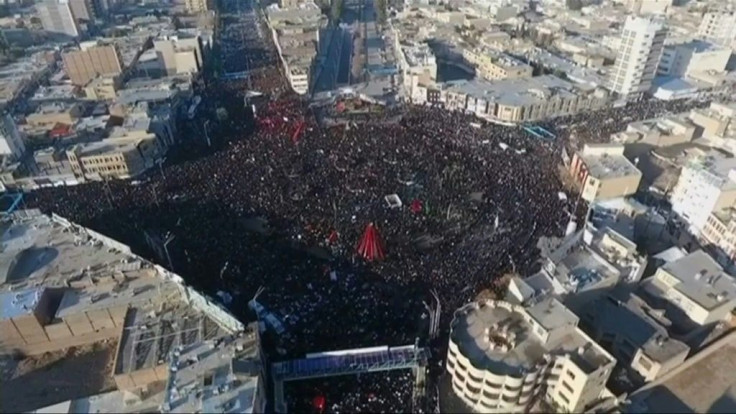
The chairman of the US Joint Chiefs of Staff, General Mark Milley, dismissed suggestions that Iran did not mean to kill Americans with the missile barrage.
"I believe, based on what I saw and what I know, is that they were intended to cause structural damage, destroy vehicles and equipment and aircraft and to kill personnel. That's my own personal assessment," Milley told reporters.
Iraqi President Barham Saleh rejected Iraq being a "battlefield for warring sides."
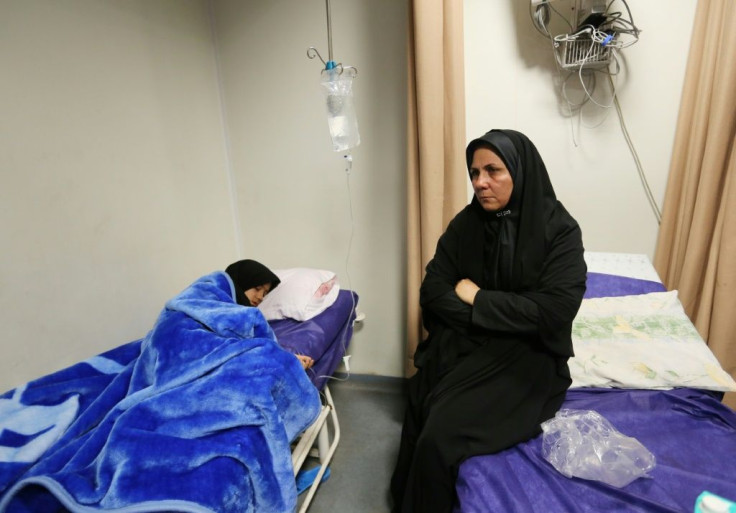
At the United Nations, Iran's ambassador said in a letter to Secretary General Antonio Guterres that despite the missile firing, Iran respects Iraq's territorial integrity.
Iran has powerful militia allies in Iraq and they said they intended to take revenge for Friday's US drone attack, in which top Iraqi paramilitary commander Abu Mahdi al-Muhandis died alongside Soleimani.
Muhandis was the deputy head of Iraq's Hashed al-Shaabi, a military network incorporated into the Iraqi state whose factions are backed by Tehran.
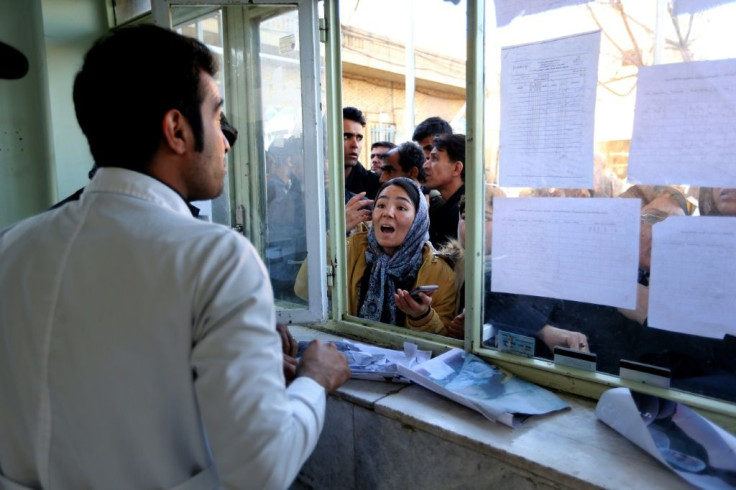
Late Wednesday two rockets, fired by unidentified forces, landed in the supposedly high-security Green Zone, where US and other embassies are located, security sources said.
AFP correspondents heard two loud detonations.
The brazenness of Iran's ballistic missile strike was unusual.
But as the dust settled, it appeared that Iran's attack -- coming soon after the burial of Soleimani at a funeral in front of vast crowds -- might have been more symbolic than anything.
Foreign Minister Mohammad Javad Zarif indicated Iran was satisfied for now.
"Iran took and concluded proportionate measures in self-defense," Zarif said on Twitter.
Reflecting deep concerns among Trump's domestic opponents, the Democratic-led US House of Representatives scheduled a vote for Thursday on limiting the Republican president's ability to wage war against Iran without congressional approval.
"The president has made clear that he does not have a coherent strategy to keep the American people safe, achieve de-escalation with Iran and ensure stability in the region," House speaker Nancy Pelosi said.
But US Defense Secretary Mark Esper insisted the United States has restored some deterrence against Iran in the wake of the Soleimani killing.
"But we will see. Time will tell," Esper said.
The apparent de-escalation in Iran did not remove pressure from approximately 5,200 US troops stationed across Iraq, where they face pro-Iranian Shiite militias and political opposition.
Paramilitary chief Qais al-Khazali -- blacklisted as a "terrorist" by the US -- said his side's response to the United States "will be no less than the size of the Iranian response."
But US Vice President Mike Pence told the CBS Evening News that "we're receiving some encouraging intelligence that Iran is sending messages to those very same militias not to move against American targets or civilians."
Angered at the US drone strike, the Iraqi parliament has called for expulsion of American troops, sparking embarrassing confusion at the Pentagon over how to respond.
Separately, a Ukraine International Airlines Boeing 737 crashed just outside Tehran after taking off bound for Kiev, killing all 176 people on board shortly after Iran launched its missiles towards Iraq.
The US aviation regulator banned civil flights over Iraq, Iran and the Gulf, citing the potential for "misidentification" of aircraft.
© Copyright AFP 2024. All rights reserved.





















